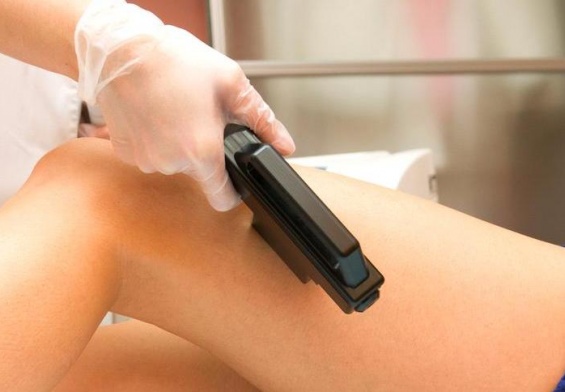Pregnancy is such a magical time in a woman’s life, isn’t it? That special glow you get when you have life growing inside you. That special treatment you get from your friends, family, and coworkers. And all those special things that are going on inside your body … the weight gain, the morning sickness, and not to mention all those ugly spider veins webbing out all over your legs. As if all the changes your body was already going through weren’t enough, was it really necessary for pregnancy to do this to you, too?! If you’re a pregnant woman who’s noticing those webbed, purplish veins developing most likely on your legs, you’re probably wondering a few things. How did you get spider veins? Is there anything you can do to keep them from getting bigger? What about after you deliver; will the spider veins go away? And, most important of all, will spider veins affect your baby?
Causes of spider veins during pregnancy
There are several things that can cause spider veins, and hormonal imbalance is one of them, which is why many women develop them during pregnancy. Other risk factors include heredity, poor circulation, and constipation, vitamin C deficiency, standing or sitting for long periods of time, or even crossing your legs for long periods of time. If varicose veins run in your family, your risk of getting them is greater. Concerning your circulatory system, when you’re pregnant, there’s increased pressure on capillaries right below the skin, which can cause veins to become enlarged. Also, during pregnancy, constipation can be an issue, especially due to the fact that you likely need to take iron supplementation. Excessive straining during bowel movements will constrict veins, and this can lead to spider veins. Concerning vitamin C, though this is not totally proven, many physicians and researchers believe that a lack of vitamin C during pregnancy can lead to development of spider veins. Additionally, though crossing your legs is not as directly involved as many people think in the development of spider veins, not moving around enough, including crossing your legs for long periods of time, can lead to issues with blood circulation, and this can lead to spider veins.
Symptoms of spider veins
The signs of spider veins are pretty obvious, as they’re those rather unsightly, purplish, webbed veins that tend to form on legs and feet, especially during pregnancy. Typically, spider veins are harmless, but they can have associated symptoms, again, especially during pregnancy. These include swelling, skin darkening or discoloration, tingling sensation, throbbing, burning, itching, and increased pain after standing or sitting for long periods of time. If you’re a pregnant woman who has spider veins, and you find that you’re experiencing symptoms from them, contact your physician immediately.
Will my spider veins affect my baby?
Thankfully, spider veins should not affect your baby at all during the term of your pregnancy. However, if you experience symptoms such as pain from your spider veins, you should let your physician know about it immediately.
Is there anything I can do about spider veins during pregnancy?
Although spider veins during pregnancy are often unavoidable, there are steps you can take to help prevent them. If you’ve already developed spider veins during your pregnancy, there are measures you can take that can help them from getting bigger or causing you additional symptoms. First, be sure to include enough healthy fiber (as directed by your physician) in your diet to stave off constipation. Exercise regularly (as directed by your physician) in order to promote optimal blood circulation. Try not to stand, walk, or sit for long periods of time if you can avoid it. If you must do any of these for extended periods, be sure to stretch and move around to keep blood flowing properly. Additionally, keep your weight gain moderate and gradual in order to avoid added pressure to your legs. Finally (as directed by your physician), wear compression or support hose, and avoid tight clothing and high heels, at least during your pregnancy.
What can I do about my spider veins after I deliver?
You’ll be glad to know that once you have your baby, your spider veins likely will disappear on their own in a couple months. However, if you find they’re not going away, or if you just can’t stand the way they look or feel any longer, there are many safe and effective treatments for spider veins, such as laser surgery, Sclerotherapy, phlebectomy, and others. It’s vital, of course, that you discuss these options with your physician. Many doctors feel it’s best to hold off treatment for spider veins and other venous conditions until after delivering, but this will be between you and your doctor.
Anyone who’s ever been pregnant knows that having a baby truly is a magical time in a woman’s life. Of course, it’s awfully taxing on your body, too. Seriously, those webbed, purplish veins may just be the last thing you care about right now, considering all the other things that are going on in your body, but it’s nice to know what to expect when it comes to spider veins. If you’d like more information on spider veins and other venous skin conditions, contact a vein treatment center to have all your questions answered or to schedule a consultation.


